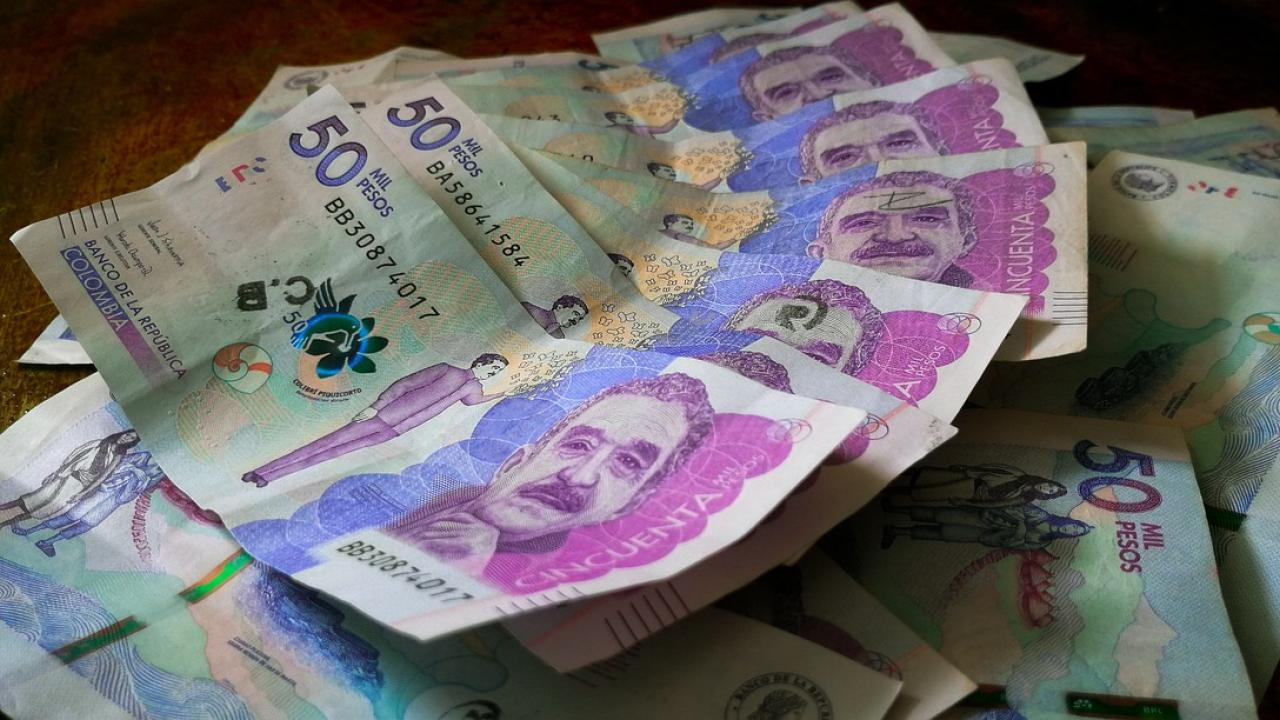
The eighth rate cut since December has sparked debate again: four policymakers opted for a 50 basis point cut, while three others favoured a deeper cut. Market analysts had expected a broader decision.
On Thursday, the board of directors of the Banco de la República de Colombia decided to reduce its interest rates again by 50 basis points, bringing them to 9.75%. The decision was divided: four directors voted in favor of a 50-point reduction, while three were in favor of a larger cut of 75 basis points.
This adjustment represents the eighth consecutive decrease since the Bank began its rate cut cycle in December 2023, when rates were at 13.25%. This reduction process is part of the Bank's policy of controlling inflation, an issue that has remained on the agenda since the inflationary surge that began following the economic effects of the pandemic in 2021.
The market expected a further rate cut, but there was uncertainty about the magnitude of the cut. Some analysts, including those surveyed in Fedesarrollo's Financial Opinion Survey and Banrep's Expectations Survey, expected a broader adjustment of 75 basis points. However, the Bank maintained the dovish approach of its last six adjustments, all in the 50 basis point range.
In its analysis, the board considered September's inflation, economic growth and fiscal uncertainty, and external factors such as the increase in the exchange rate against the dollar - today it exceeded $4,400 -, the political uncertainty of the elections and the Federal Reserve rates. These elements influenced the decision to make a cautious adjustment, given that the economic context remains uncertain.
The manager of the issuer, Leonardo Villar, said that inflation needs to be reduced further so that rates continue to fall.
Until now, the Bank's preferred rate cut measure has been 50 basis points, a decision that has been applied in the last six decisions; in the first two downward adjustments (December 2023 and January of this year) this figure was 25 basis points.
Inflation remains in focus
The decline in interest rates is closely linked to the evolution of inflation, which has shown a downward trend since the end of 2023. This decline, which the Bank began in December of last year, reflects, in turn, the path that inflation has been taking in Colombia, which at this point has accumulated more than a year of declines, which allows us to speak of a clear downward trend.
In September, the Consumer Price Index (CPI) registered an annual variation of 5.81%, the lowest since December 2021, when it stood at 5.62%. According to DANE director Piedad Urdinola, the September result indicates that inflation is maintaining a sustained rate of decline.
This price adjustment dispels concerns about a possible inflationary impact of the recent truckers' strike, which caused supply problems in food and fuel. Finance Minister Ricardo Bonilla explained that the strike did not have a significant effect on inflation, as the CPI only registered a monthly increase of 0.24% in September.
The DANE director said that, given that the strike lasted only a short time (four days), it is difficult to analyze the possible effects on prices and that, in any case, the CPI measures the variations, but does not allow determining the causes. “For us it is not possible to determine what effect the strike had.” However, for some analysts it is clear that the blockades did not generate major impact.
Bonilla also stressed that the increase in the price of diesel did not generate "the catastrophic effect" that was once mentioned, since the transport division only contributed 0.03 points to monthly inflation.
Inflation has thus been gradually gaining ground and, despite some anomalies, appears to have resumed a more stable and rapid rate of decline.
Looking ahead, the Government estimates that inflation will reach the 3% target by mid-2025, a figure that the Bank of the Republic considers ideal and that would be maintained until 2035, according to the Medium-Term Fiscal Framework.
What is the role of interest rates in the economy?
To understand how these rate decisions affect consumption and the daily economy, it is useful to view interest rates as a key cog that influences the entire economic chain.
The Banco de la República, as the central bank, sets the interest rate that other banks must take into account when deciding the costs of their loans. Thus, if the Bank raises rates, credit for citizens and companies becomes more expensive, discouraging borrowing and, in theory, reducing consumption. This reduction in consumption can moderate the demand for goods and services, which helps to stabilize or reduce prices and, therefore, inflation.
On the other hand, when the Bank lowers rates, credit becomes cheaper, which encourages spending and investment. In this case, the Bank opted to maintain a progressive reduction in interest rates, seeking a balance that allows the economy to grow without losing sight of controlling inflation.









